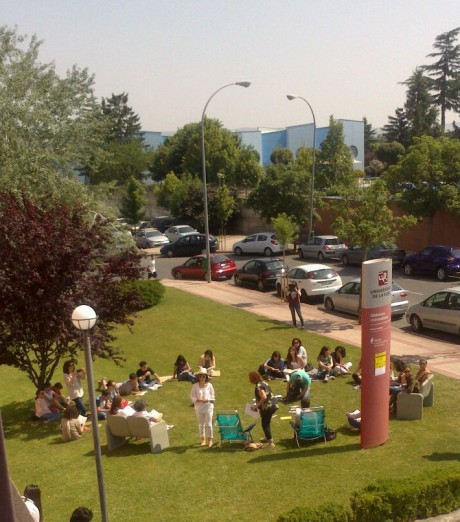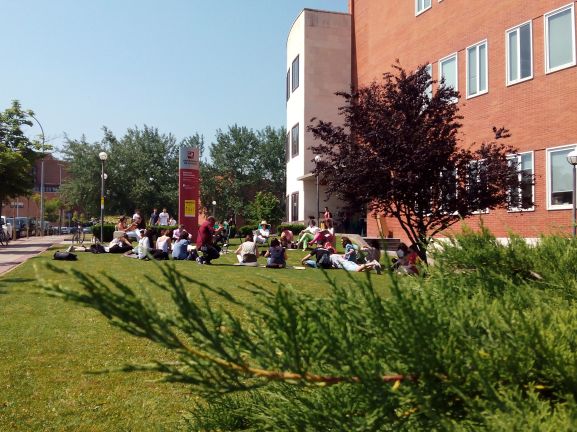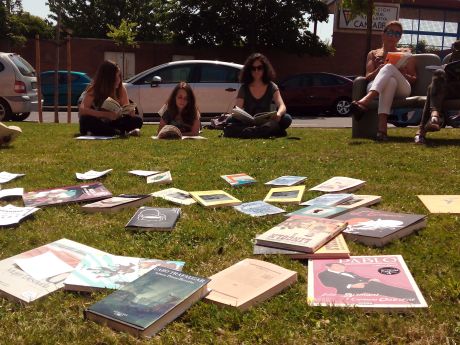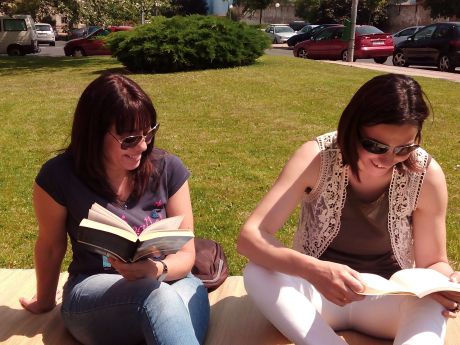¿Qué he hecho yo para leer esto?
 A punto de empezar, 11.55 del miércoles 3 de junio de 2015. Imagen tomada desde una de las ventanas de la Biblioteca de la Universidad de La Rioja.
A punto de empezar, 11.55 del miércoles 3 de junio de 2015. Imagen tomada desde una de las ventanas de la Biblioteca de la Universidad de La Rioja.
A las doce en punto hemos empezado a leer en silencio pero con mucho sol, el emplazamiento próximo a la entrada principal de la BUR era estupendo pero caía un sol de justicia y además de leer nos hemos puesto morenos. La Biblioteca está estos días llena de alumnos estudiando para los exámenes.
 Poco a poco se han ido sumando más personas. Logroño, 3 de junio de 2015.
Poco a poco se han ido sumando más personas. Logroño, 3 de junio de 2015.
Celebrando la lectura como un acto de participación social y un ejercicio simbólico de ciudadanía activa. Lemas de Mandarache.
 En el Centro hemos colocado los libros recomendados por usuarios que no han podido acudir.
En el Centro hemos colocado los libros recomendados por usuarios que no han podido acudir.
Con todas las fotos y el vídeo grabado la organización del Premio realizará un montaje.
Ver la entrada original 95 palabras más
